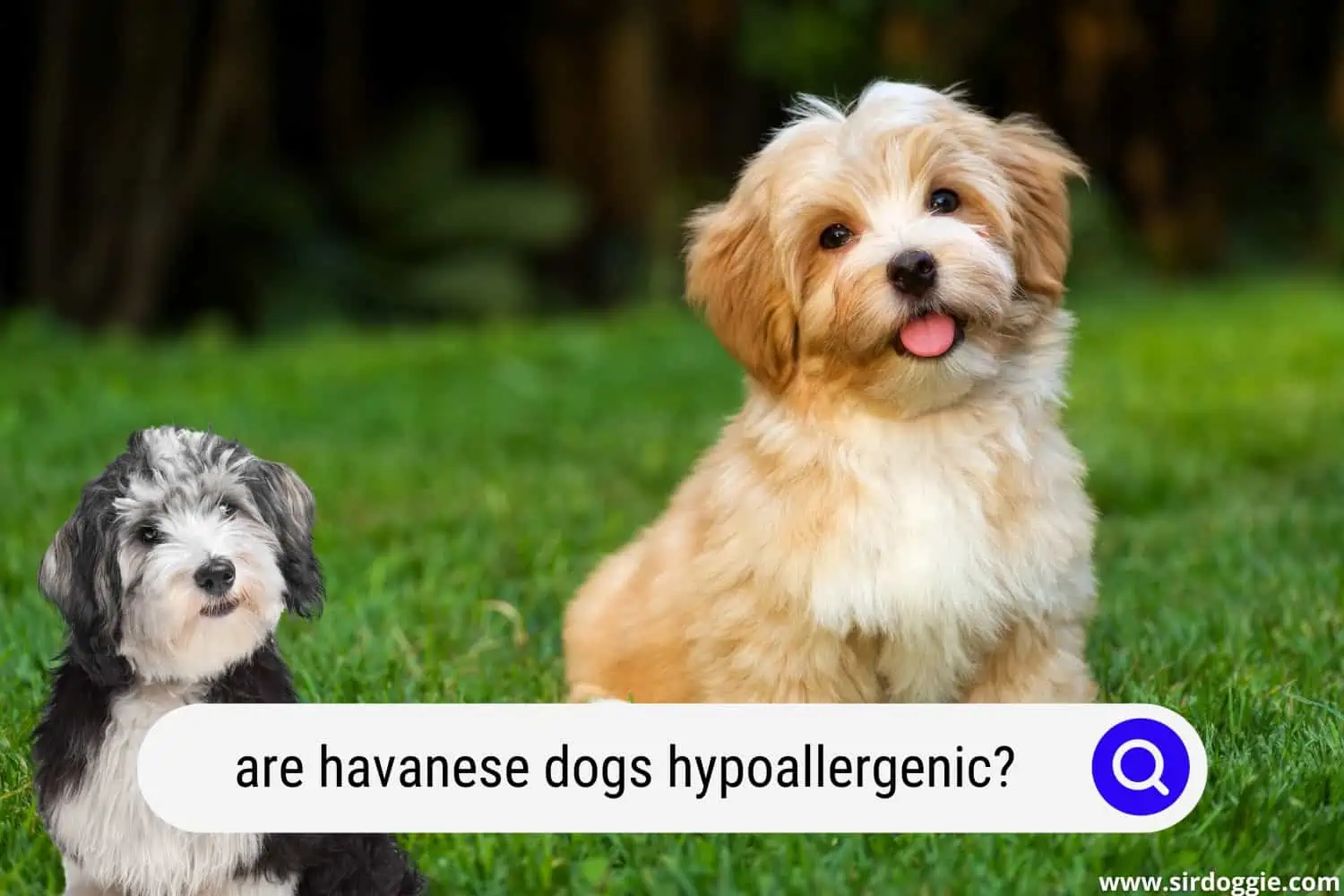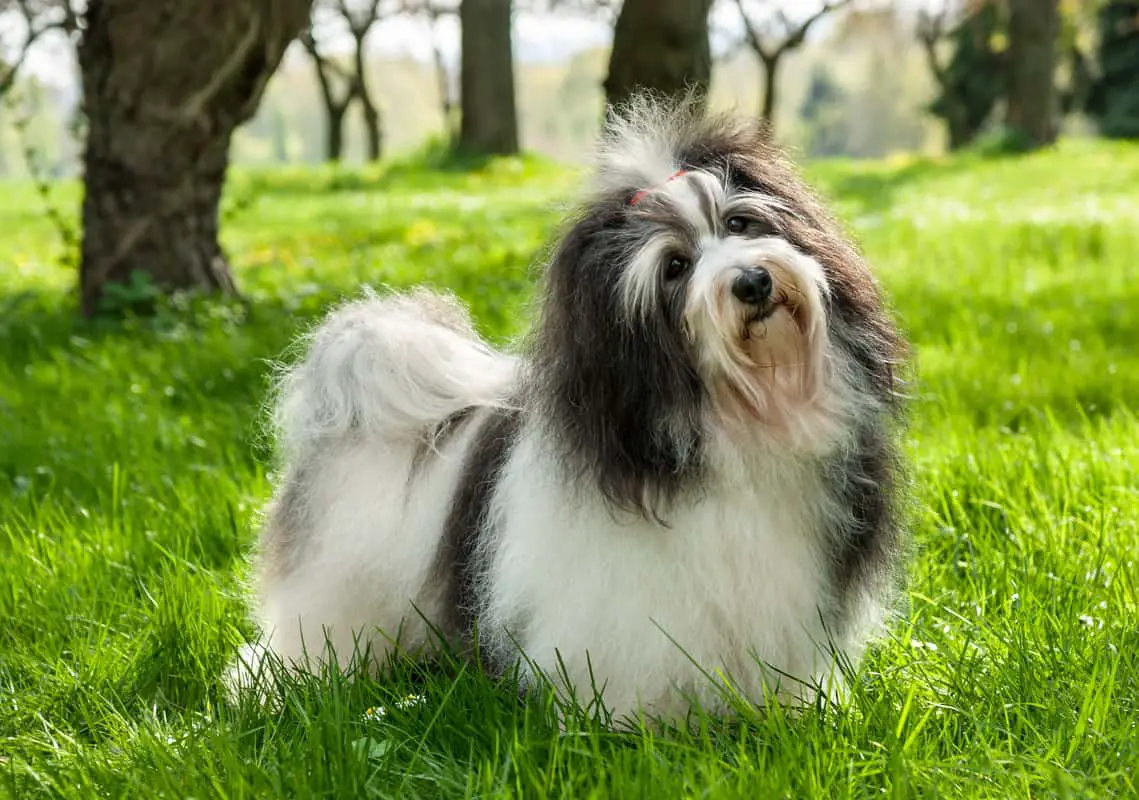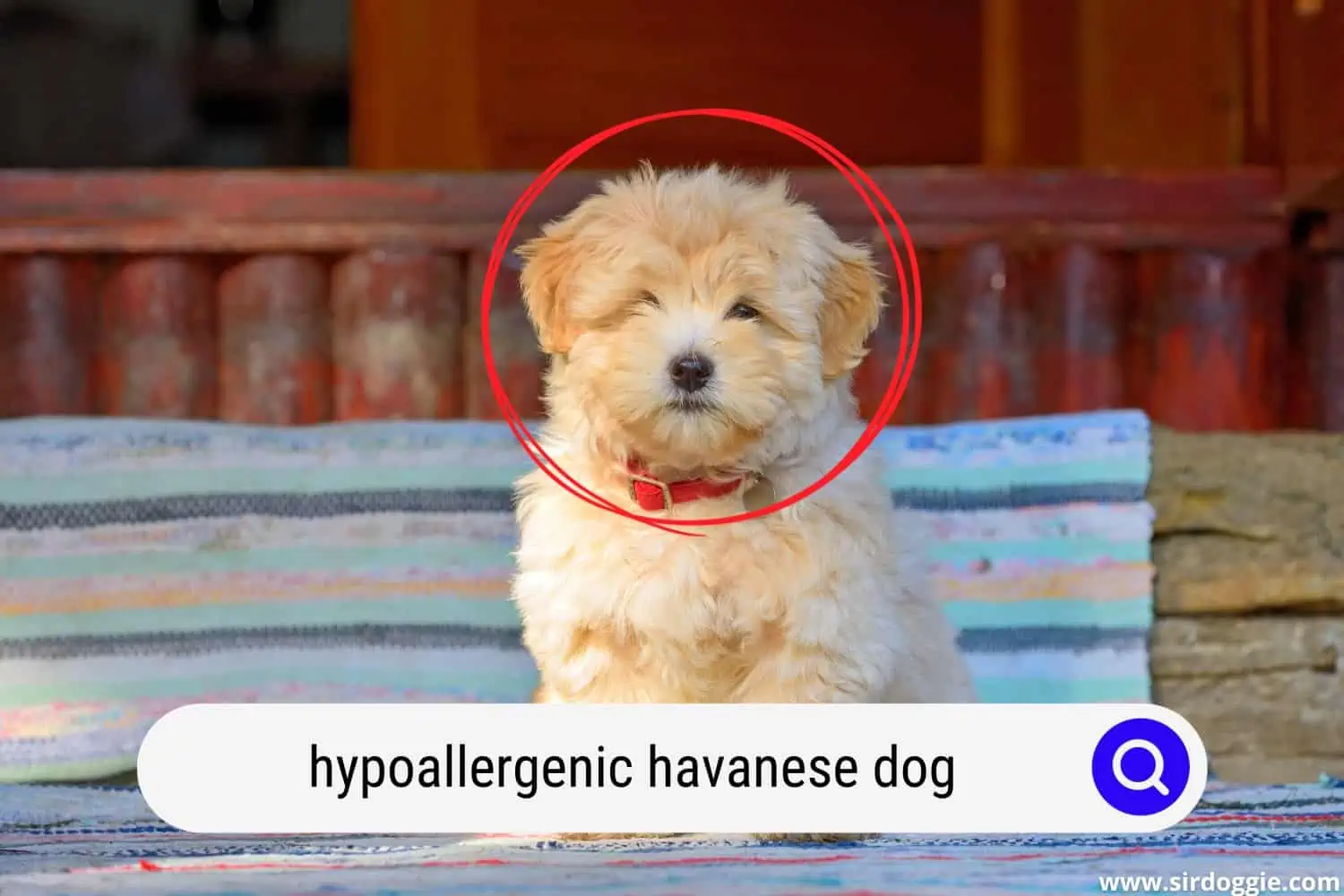Are Havanese Dogs Hypoallergenic? Find Out Here!
Although no dog is 100% hypoallergenic, the Havanese dogs are considered hypoallergenic and are less likely to trigger your allergies.

Are you thinking of owning a Havanese dog? Then you might be wondering if they are hypoallergenic and how much they shed.
This is good news for pet parents with allergies as Havanese dogs are a great addition to any household.
They respond well to training, don’t require a ton of activity to stay fit and despite their long hair, don’t shed a lot either.
The allergens from dogs are typically found in the urine, saliva, skin, and feces of the dog. They can be carried on hair and dander.
Related Reading: Complete Guide to the Chocolate Havanese Breed
Do Havanese dogs shed?
Havanese are considered a low-shedding dog breed. They have a double coat that can be silky or fluffy. You may expect some shedding during the early spring and the late fall.
All dogs shed to some degree, even the so-called non-shedding Havanese.
Although these toy dogs don’t shed a lot they do have a lot of grooming requirements. This will keep the long hair free of tangles and knots.
Are Havanese high-maintenance dogs?
They are higher-maintenance dogs and require a lot of grooming to keep their silky coats soft and beautiful. Here are some tips for Havanese grooming:
- It’s important to ensure that the Havanese is brushed at least once per day.
- When you’re grooming your Havanese, check for matted hair. Be sure to always brush your Havanese right down to the skin so you don’t miss any mats.
- Dirty hair mats more quickly, so clean your Havanese when they get dirty outside. They need weekly baths with a moisturizing shampoo and conditioner.
- If they have a puppy cut or the fur is cut short, they will need to be clipped every six to eight weeks
- Havanese dogs need a monthly nail trim and twice-weekly tooth brushing as part of the maintenance routine.
The Havanese is an intelligent, small companion dog that is affectionate and loving. Take breaks to praise and say sweet things to your Havanese while you are grooming them! Grooming is a great chance to develop your bond!
The Havanese needs as much exercise as a larger dog. They have a fair amount of energy to burn. Here’s how you can meet their exercise requirements:
- You can take them for a long walk
- Play games like fetch
- Set up an agility course
- Teach them new tricks
- Let them play with puzzle toys to challenge their minds and test their problem-solving skills
Havanese are generally healthy and sturdy with relatively few serious health issues.

Do Havanese Dogs need a lot of attention?
Committing to any pet is a serious decision. Havanese are very people-oriented and affectionate dogs. They love snuggling in laps and can be overly dependent.
Havanese seem to have a constant need to be the center of attention. They do not like to be alone for long periods. They may suffer from separation anxiety if left alone for too long.
A Havanese dog that shows one or more of the following symptoms may have developed separation anxiety.
- Persistent barking, howling, or screaming
- Destructive chewing or digging in your home
- Urinating in the home or even defecating inside in an otherwise house-trained dog
- Pacing around the home or trembling in their crate
There are many ways of tackling dog separation anxiety. They include:
- Exercise: A tired dog is a happy dog. Take your Havanese for a long walk before you leave your dog at home alone.
- Calm departure: Don’t make your departure and arrival a big deal in front of your Havanese.
- Keep them busy: Give your dog chew toys and other activities. This will distract them and keep them busy while they are alone.
- Provide training: Train your Havanese to deal with separation anxiety. Discourage your dog to follow you all the time and teach him to stay in one room while you are in another room.
For these reasons, they wouldn’t suit a person who is going to be out at work for several hours a day.
Understanding Dog Allergens
Allergens from Havanese dogs are small and lightweight. Once in the air, they can remain suspended for long periods. Eventually, they settle down on carpets, bedding, furniture, clothing, and other items in the home.
In general, symptoms will worsen when a person is exposed to greater amounts of allergens. There are many ways to prevent allergies through reduction of exposure to allergens and treatment of symptoms.
Havanese allergies typically cause nose, eye, skin, and respiratory symptoms.
Nose and eye symptoms:
- Sneezing
- Runny or stuffy nose
- Red, itchy, or watery eyes
- Itchy nose, throat, or roof of the mouth
Skin symptoms:
- Dry, itchy skin
- Rashes, hives
Respiratory symptoms:
- Cough
- Wheezing when breathing
- Chest tightness
- Shortness of breath
How Do You Stop Dog Allergies
Here are some tips that you can apply to either yourself or your Havanese dog to limit the effects of allergies.
Regular bathing
Bathe dogs regularly to remove allergens from their fur. For your dog’s health use shampoo formulated for canines. Regular bathing can minimize dander levels on your pug.
A dryer specific for dogs can save a lot of time and get the job done more efficiently as well.
Regular brushing
Maintain a regular brushing routine for your Havanese dogs. You must ensure to do it outdoors to avoid excess hair in your home.
Keep your bedroom pet-free
Restrict your dogs from rooms where reduced exposure is desired. Airborne dog allergen levels are much higher in rooms where dogs are physically present.
Don’t allow dogs to sit on the furniture
Couches have been shown to harbor a large amount of allergens, so it is recommended to keep your Havanese dogs off of furniture.
Wash your hands after interacting with the dog
Always wash your hands immediately after handling your Havanese dog.
General Household Controls
Here are some tips that you can apply to your home to limit the effects of allergies on your Havanese dog.
Keep your house clean
Dust and clean your home thoroughly and also your Havanese toys and bedding. Wash your dog’s rugs, beds, cushions, blankets, and washable play items and toys regularly to avoid dander build-up.
Cleaning products
Avoid “dry” cleaning like brooms and feather dusters. Instead, use statically charged cleaning products and clean with wet supplies such as damp cloths and mops which will trap and remove allergens. Allergic individuals should wear a disposable dust mask.
Use hot water for laundering
When laundering bedding, clothing, and other washable items (including dog beds) use high temperatures and detergents to remove more allergens.
Use a vacuum cleaner in your house
Vacuum regularly, at least once a week, with a good vacuum cleaner.
Consider an air purifier
Use an air purifier with a HEPA filter in the room where Havanese dogs spend most of their time. This will reduce the concentration of allergens in the air.
Avoid carpeting
When possible, replace the carpet with smooth floorings like wood, tile, or linoleum. Carpets are the primary reservoir of allergens in the home.
Consider allergy shots
Allergy shots or allergy vaccines will help you develop antibodies so that you won’t get allergies when exposed to some allergens.
With a few efforts and lifestyle changes, you can manage your allergies and live happily with your Havanese dog. Most people can keep their Havanese dogs while managing their allergies.

Final Thoughts
The Havanese is an excellent family dog who’s affectionate with everyone. These dogs are great pets for tidy people because they hardly shed. So, if you are a neatnik and intolerant of dog hair, then this breed is for you.
So there we have it, Havanese are considered a hypoallergenic dog breed. However, if you have a known allergy to dogs, it may be best to consult an allergist before choosing a Havanese dog for your new pet.

Family Dog Expert Author
Hi there! I’m Stuart, a devoted dog lover and family dog expert with over a decade of experience working with our furry companions. My passion for dogs drives me to share my knowledge and expertise, helping families build strong, loving bonds with their four-legged friends. When I’m not writing for SirDoggie, you’ll find me hiking, playing with my beautiful dog, or studying music.